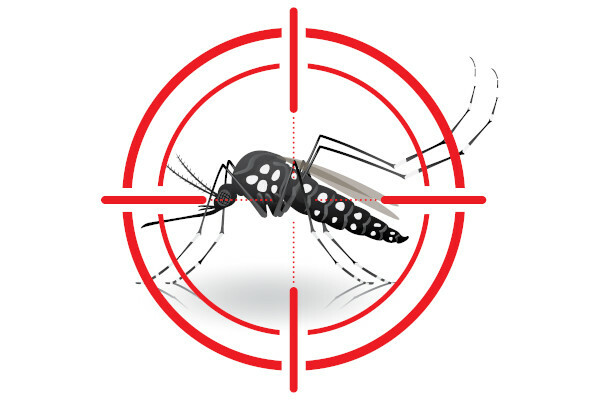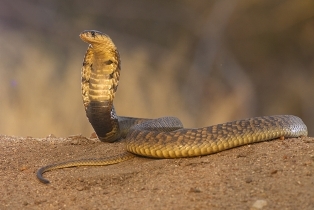THE dengue is a disease caused by avirus, which is transmitted by mosquito bites Aedes aegypti. Symptoms include fever, body aches, headache and reddened spots. Bleeding manifestations,when they do occur, they can indicate a more severe case of the infection.
Dengue does not have a specific treatment, being used drugs that aim only to relieve symptoms. In severe cases, hospitalization may be necessary to avoid complications. As there is no treatment, the best option is invest in prevention, preventing, for example, the proliferation of mosquitoes.
dengue causing agent
Dengue is a disease caused by virus, which is transmitted by the bite of an infected mosquito. Circulate, in Brazil, four types of dengue virus, which are known as serotypes 1, 2, 3 and 4. A curious fact is that the person who becomes infected by one of these viruses acquiresimmunity to him, that is, the person will no longer have dengue caused by that type of virus.
Dengue transmission

Known as dengue mosquito, O Aedes aegypti is responsible for ensuring the transmission of the disease in our country. O Aedes aegyptiit is a domestic mosquito, living close to man, and it is common to observe its presence inside houses. Your habits are daytime, the period of greatest activity being dawn and dusk. This does not mean, however, that the THE. aegypti do not sting at night.
This mosquito, in order to reproduce, needs standing water, which is where its eggs are laid. Its proliferation is greater in the summer, a time with the greatest amount of rain and also with the highest temperature, characteristics that facilitate reproduction.
THE transmission occurs by the bite of Aedes aegypti infected. It is noteworthy that the disease is not transmitted through contact with the sick patient or with their secretions.
Read too:Zika: another disease transmitted by Aedes aegypti
dengue symptoms
Dengue can develop in a way asymptomatic, that is, without causing symptoms, or else causing symptoms, which can be mild to severe. When symptoms appear, they appear about 5 to 6 days after the infected mosquito bite. The main symptoms of the infection are:
- High fever;
- malaise;
- Body pain;
- Pain behind the eyes;
- Headache;
- Red spots on the body.
Usually the first symptom to appear in case of dengue is fever, which can go away in less than a week. In severe cases of the disease, persistent vomiting, abdominal pain and bleeding manifestations, such as bleeding from mucous membranes.
Read too: Hemorrhagic fever: learn more about this event that can lead to death!
Dengue diagnosis
Dengue is usually diagnosed through analysis of the symptoms that the patient has. However, some blood tests may be ordered to confirm the diagnosis of the disease.
dengue treatment
Dengue is a disease that has no specific treatment. Typically, there is a c.spontaneous, in most cases, in just over a week. During this period, when the body is expected to recover from the infection, the medications used are aimed at relieving symptoms, such as body pain and intense itching, in some cases. Also, the recommendation is that the patient rest and hydrate well.
Medicines with acetylsalicylic acid, for example, cannot be used, as they affect blood clotting and may favor the development of hemorrhagic manifestations. Other medications that should be avoided are ibuprofen and non-steroidal anti-inflammatory drugs. By taking medications that are not recommended by the doctor, the patient can cause complications. danger of self-medicationAn important point is the
Read too: Diseases transmitted by Aedes aegypti
Dengue prevention
The best way to prevent dengue is preventing the multiplication of the mosquito that transmits the disease. For this, it is important to take some precautions to avoid standing water, a way in which the mosquito proliferates, such as:
- Keep the water tank always closed;
- Put sand on the edge of the plants' plates to prevent water accumulation;
- Change water from aquatic plants once a week;
- Do not dispose of garbage improperly;
- Do not leave debris lying around in the yard;
- Clean the gutters well;
- Keep the pool always clean;
- Clean well, at least twice a week, the containers that are used to put water for animals;
- Cover little used drains;
- Do not leave objects that can accumulate rainwater.

People can also prevent dengue by using repellents and clothes that cover the body well, these actions are important, especially in areas where an increase in the number of cases of the disease is known. We can't also forget about the dengue vaccine. So far, there is a vaccine registered with Anvisa, but it is only available on the private network. The vaccine has three doses and should be applied to people who have had dengue at least once.


